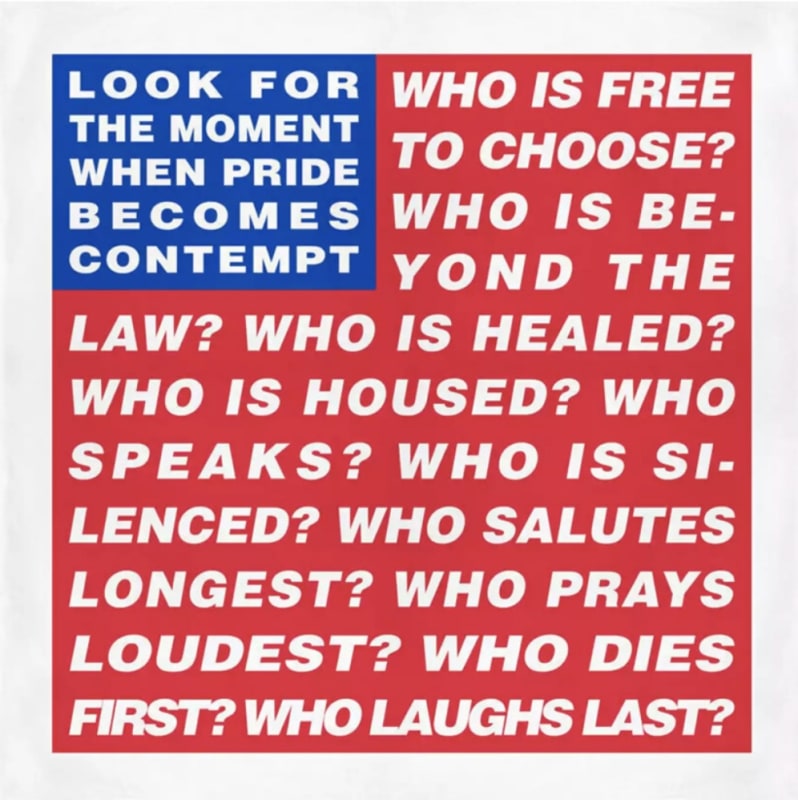“Seeing is no longer believing. The very notion of truth has been put into crisis. In a world bloated with images, we are finally learning that photographs do indeed lie.” Barbara Kruger
Barbara Kruger is an American artist known for her provocative and politically-charged works that explore themes of power, consumerism, gender, and identity. She was born on January 26, 1945, in Newark, New Jersey.
Kruger began her artistic career as a graphic designer in the 1960s, working at various magazines such as Mademoiselle and House and Garden. This background heavily influenced her artistic style, which incorporates bold, eye-catching text and images reminiscent of advertising and mass media.
In the late 1970s, Kruger transitioned from design to fine art and began creating her iconic works using found photographs overlaid with provocative slogans. Her works often feature black-and-white photographs sourced from magazines and other media, accompanied by phrases written in Futura Bold Oblique font. By appropriating and recontextualizing these images, Kruger challenges conventional notions of gender, sexuality, and social norms.
Kruger's art became recognized for its strong feminist and sociopolitical messages, which critiqued consumer culture, capitalism, and the objectification of women. Her works often address issues of power and control, drawing attention to the ways in which language and imagery shape our understanding of reality.
Throughout her career, Kruger has exhibited her work in numerous solo and group exhibitions around the world. She has created large-scale installations, public art projects, and immersive environments that engage viewers and provoke critical thinking.
Kruger's influence extends beyond the art world. Her distinctive visual style and thought-provoking messages have made their way into popular culture, inspiring other artists, designers, and activists. Her works have also been featured on book covers, album covers, and in advertising campaigns, further blurring the lines between art and commercial culture.
